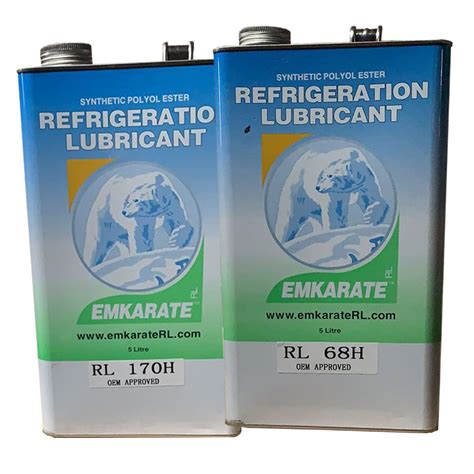The world of refrigeration has undergone significant transformations in recent years, driven by the need to reduce environmental impact and improve efficiency. One of the critical components in refrigeration systems is the oil used in conjunction with the refrigerant. For HFC (Hydrofluorocarbon) refrigeration applications, selecting the right oil is crucial for optimal performance, reliability, and sustainability. In this article, we will delve into the importance of choosing the best oil for HFC refrigeration applications and explore the key characteristics and options available.
Why Choosing the Right Oil Matters
In refrigeration systems, the oil plays a vital role in lubricating the compressor and other moving parts, preventing wear and tear, and ensuring efficient heat transfer. The wrong oil can lead to reduced system performance, increased energy consumption, and even premature equipment failure. When it comes to HFC refrigeration applications, the oil must be compatible with the refrigerant and the system's materials to prevent corrosion, contamination, and other issues.
Key Characteristics of HFC Refrigeration Oils
When selecting an oil for HFC refrigeration applications, several key characteristics must be considered:
- Viscosity: The oil's viscosity affects its ability to lubricate the compressor and other moving parts. A lower viscosity oil may be suitable for low-temperature applications, while a higher viscosity oil may be necessary for high-temperature applications.
- Thermal Stability: The oil must be able to withstand the high temperatures generated during compression and expansion without breaking down or degrading.
- Chemical Stability: The oil must be compatible with the HFC refrigerant and other system materials to prevent corrosion, contamination, and other issues.
- Low-Temperature Fluidity: The oil must remain fluid at low temperatures to ensure proper lubrication and system performance.
Types of Oils for HFC Refrigeration Applications
Several types of oils are suitable for HFC refrigeration applications, including:
- Polyol Ester (POE) Oils: POE oils are widely used in HFC refrigeration applications due to their excellent thermal and chemical stability, low-temperature fluidity, and compatibility with HFC refrigerants.
- Polyalkylene Glycol (PAG) Oils: PAG oils are another popular choice for HFC refrigeration applications, offering excellent thermal stability, low-temperature fluidity, and compatibility with HFC refrigerants.
- Polyalphaolefin (PAO) Oils: PAO oils are synthetic oils that offer excellent thermal stability, low-temperature fluidity, and compatibility with HFC refrigerants.
Best Oils for HFC Refrigeration Applications
Based on their characteristics and performance, the following oils are considered among the best for HFC refrigeration applications:
- Shell Helix Ultra: A POE oil that offers excellent thermal and chemical stability, low-temperature fluidity, and compatibility with HFC refrigerants.
- Mobil EAL Arctic: A PAG oil that provides excellent thermal stability, low-temperature fluidity, and compatibility with HFC refrigerants.
- Castrol Polyalphaolefin (PAO): A PAO oil that offers excellent thermal stability, low-temperature fluidity, and compatibility with HFC refrigerants.
Practical Considerations
When selecting an oil for HFC refrigeration applications, several practical considerations must be taken into account:
- System Compatibility: Ensure the oil is compatible with the system's materials, including the refrigerant, compressor, and other components.
- Operating Conditions: Consider the system's operating conditions, including temperature, pressure, and humidity, when selecting an oil.
- Maintenance and Service: Consider the oil's maintenance and service requirements, including filterability, drain intervals, and compatibility with system components.

Conclusion
Choosing the right oil for HFC refrigeration applications is critical for optimal performance, reliability, and sustainability. By considering the key characteristics and options available, including POE, PAG, and PAO oils, system operators can ensure their refrigeration systems run efficiently and effectively. Remember to consult the system's manufacturer recommendations and consider practical factors, such as system compatibility, operating conditions, and maintenance requirements, when selecting an oil for HFC refrigeration applications.
Gallery of Refrigeration Oils






FAQs
What type of oil is best for HFC refrigeration applications?
+POE, PAG, and PAO oils are commonly used in HFC refrigeration applications due to their excellent thermal and chemical stability, low-temperature fluidity, and compatibility with HFC refrigerants.
What are the key characteristics of HFC refrigeration oils?
+The key characteristics of HFC refrigeration oils include viscosity, thermal stability, chemical stability, and low-temperature fluidity.
How do I select the right oil for my HFC refrigeration system?
+Consider the system's compatibility, operating conditions, and maintenance requirements when selecting an oil for HFC refrigeration applications. Consult the system's manufacturer recommendations and choose an oil that meets the system's specifications.
